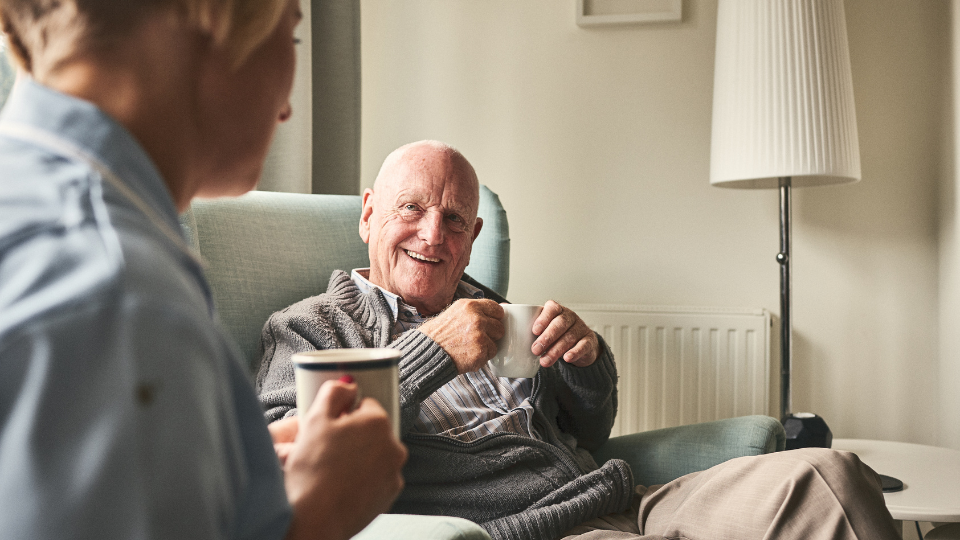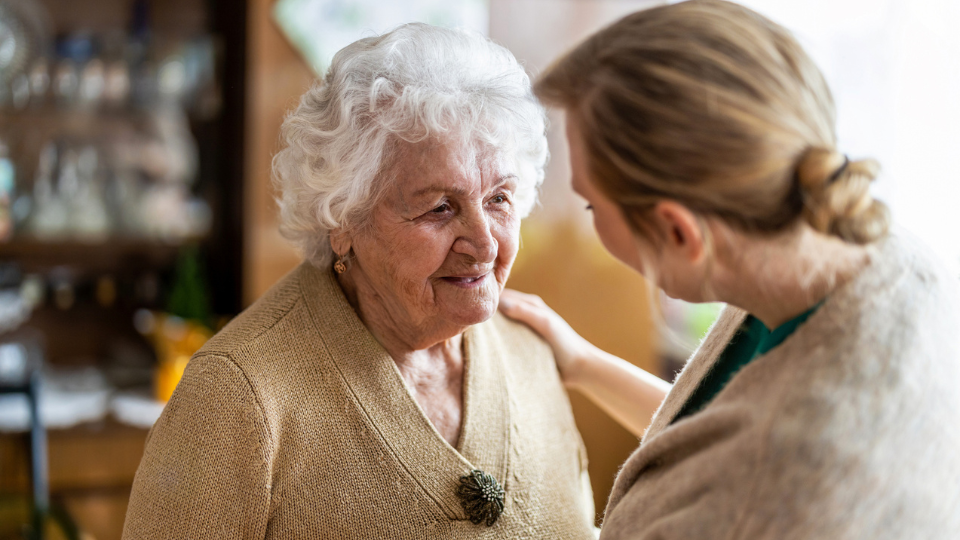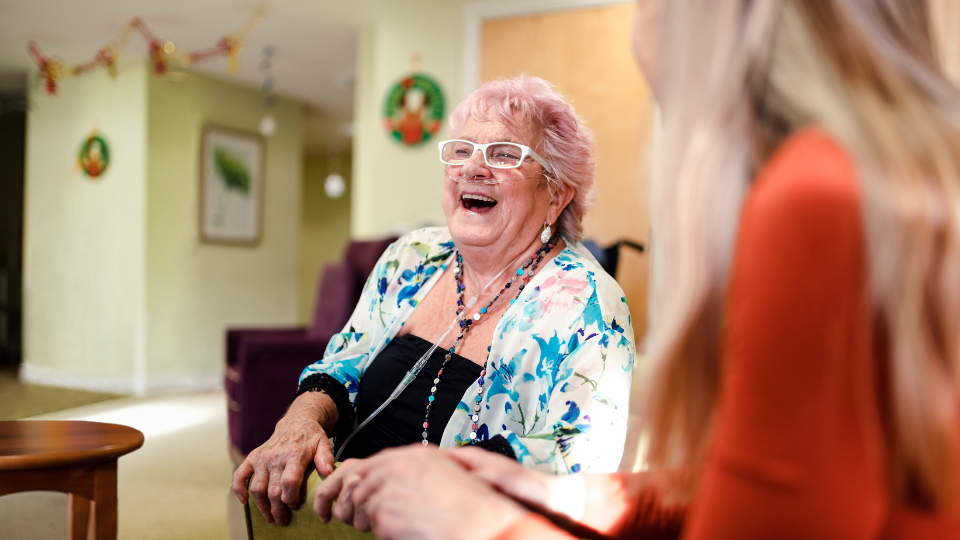
What is 'sundowning syndrome'?
When someone with dementia displays certain behaviours in the late afternoon or early evening, it's often referred to as 'sundowning'. During this time, a person may act out-of-character, and become increasingly anxious or agitated.
When a person with dementia behaves in a way that isn’t in keeping with their usual demeanour, they may be trying to express that they need something or that they're possibly struggling. It's important to look into their actions to identify and address any possible issues they're having.
What can cause sundowning?
Hunger, thirst, physical pain or mental anguish can all cause someone with dementia to act out-of-character, so it's essential to check whether someone is trying to tell you they're struggling.
Physical ailments such as a urinary tract infection, incontinence, restless leg syndrome (RLS) and sleep apnoea can also worsen sleep problems and contribute to someone acting differently.
Sundowning in the late afternoon or early evening can also be caused by the following:
- A person feeling that they're in the wrong place, as the evening is a time when people tend to settle in at home
- Having too little sleep or having disturbed sleep
- Disorientation, as they're unable to separate dreams from reality
- Being exposed to too little or too much light
- Prescribed medication wearing off, which can cause discomfort
- Medications that cause or worsen confusion and agitation
- Excessive or disturbing noises, which can be frightening or overstimulating
- Exhaustion
Tips for managing or preventing sundowning
First and foremost, if someone with dementia is displaying signs of sundowning, ask them what the matter is. Listen carefully to their response and if possible, see if you can deal with the source of their distress.
Also, think about whether they're trying to communicate that they need something, such as needing the toilet, feeling hungry or being in pain.
Other ways of helping someone who appears to be sundowning include:
- Try to get a person involved in an activity such as a hobby or something they would usually do at this time. Alternatively, take them to a different room, make a snack or drink or even turn on some of their favourite music
- Keep lighting appropriate – if it's too dark, a person can become distressed as they may have trouble seeing things. Meanwhile, an environment that's too bright can cause overstimulation
- Make their sleep environment comfortable and safe, with nightlights and the room set to an appropriate temperature
- Get some exercise outdoors, no later than 4 hours before bed
- Make sure a person gets enough natural light during the day
- Limit caffeinated drinks
- Limit naps to encourage a person to sleep well at night
- Close the curtains and turn the lights on before dusk, to help the transition into night time
- Cover mirrors or glass doors
- Speak in short sentences and give simple instructions, to try and limit their confusion
- Avoid large meals in the evening
- Make sure finger food and drink is available in case they get hungry
Every person with dementia is different, and there's no ‘one size fits all’ approach to supporting them through sundowning. To help someone, keep a diary of their symptoms and behaviour so you can start to recognise any triggers and the remedying activities that the person responds to.
Responding or communicating to someone who appears to be sundowning
When someone with dementia develops out-of-character behaviour, it's important to remember that they're not simply behaving badly. Their behaviour may be a result of dementia, an underlying health problem, their general environment or even the care they're receiving.
Therefore, it's important to remain calm, to prevent the situation or behaviour worsening. It's also crucial to communicate with the person as much as possible to get a better understanding of what they want or need.
Contact us to make an enquiry or for more information
If you'd like to find out more about our dementia care homes, which offer long-term stays and respite services, please make an enquiry online or call us today.



